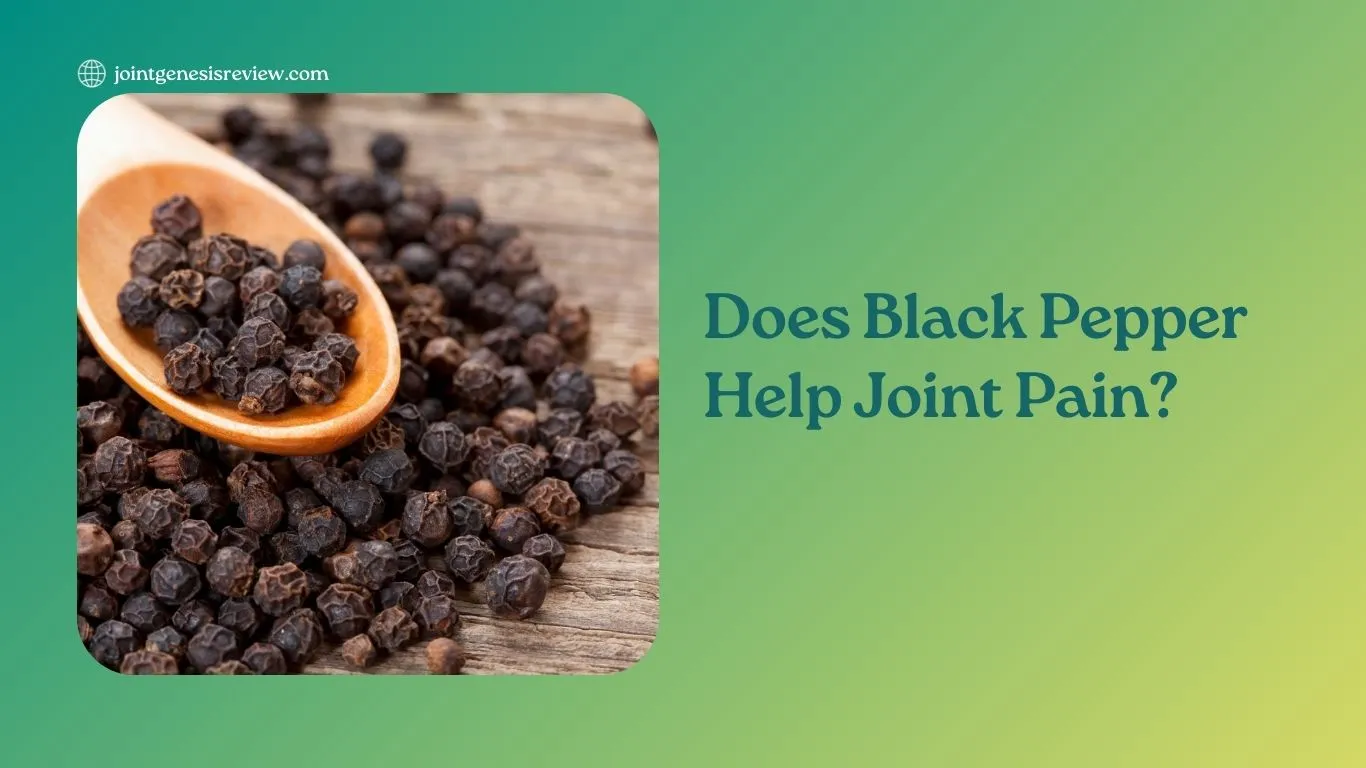Can Black Pepper Really Ease Joint Pain?
While black pepper has been traditionally believed to offer relief for joint pain, scientific evidence supporting its effectiveness remains limited and inconclusive.

Disclaimer: This article has been generated with the assistance of AI tools. While our research team has fact-checked the content, readers should independently verify information for accuracy and reliability.
Joint pain can be a real nuisance, making it difficult to get through the day. Whether it’s achy knees, stiff hips, or sore fingers, joint discomfort can severely impact your quality of life. Many people look for natural remedies to help alleviate joint pain, and black pepper is one ingredient that is sometimes touted as beneficial. But does the science support the claim that black pepper can help with joint pain? Let’s take a closer look.
The Active Ingredient in Black Pepper
The main active ingredient in black pepper is a compound called piperine. Piperine is what gives black pepper its characteristic pungent flavor. Piperine has been studied for its potential medicinal properties and anti-inflammatory effects.

Inflammation is a major contributor to joint pain, so an anti-inflammatory compound like piperine could theoretically help reduce joint discomfort. A study published in the National Library Of Medicine says that in animals and test tubes have shown that piperine may have modest anti-inflammatory effects. The proposed mechanism is that piperine can help block the production of inflammatory chemicals in the body.
Does Black Pepper Help Joint Pain? What’s the magic
Given the potential anti-inflammatory effects of piperine, you might think that taking black pepper or piperine supplements would be an effective natural treatment for joint pain. However, the evidence in humans is much more limited.
There are a handful of small studies that have looked at whether black pepper or piperine supplements can impact joint pain in humans. The results have been mixed.
One study gave people with knee osteoarthritis a piperine supplement or a placebo for 4 weeks. The piperine group did report slightly less knee pain, but the difference was small and not statistically significant, meaning it could have been due to chance.
Another study looked at people with rheumatoid arthritis. After 8 weeks, those taking a piperine supplement did show some improvements in joint tenderness and swelling compared to the placebo group. However, the study was quite small, with only 32 participants total, so the results need to be interpreted cautiously.
While these results are somewhat promising, the evidence is still fairly limited. More large-scale, high-quality studies would be needed to say with confidence whether black pepper or piperine can effectively treat joint pain in humans.
Other Ways Black Pepper May Help
Even if the evidence for black pepper and joint pain is still inconclusive, there are a few other ways this spice may provide some benefits:
- Piperine may enhance the absorption of certain nutrients, like turmeric, that have anti-inflammatory properties. This could potentially amplify the effects of those other nutrients.
- Black pepper contains antioxidants that could help reduce overall inflammation in the body, which may have secondary benefits for joint health.
- Piperine may have some direct pain-relieving effects, though the evidence for this is also limited.
So while black pepper is generally considered safe and may provide some modest benefits, it shouldn’t be viewed as a cure-all for joint pain. More research is still needed to determine its true efficacy.
Is It Worth Trying Black Pepper for Joint Pain?
Given the mixed evidence, whether black pepper is worth trying for joint pain is ultimately a personal decision. Some people may find that it provides them with a little relief, while others may not notice any difference. But black pepper along with other pain relief ingredients may give good results. Supplements like Joint Genesis are worth a try.
Does Black Pepper Help Joint Pain? Should you use it?
The honest answer is that the research is still Going on. Black pepper is generally safe and inexpensive, so it may be worth a try if you’re dealing with joint discomfort. Don’t expect miracles – it’s unlikely to be a magic bullet for joint pain. Just like any natural medication, it may take a lot of time, so it’s important to keep one’s expectations in reality. Anyone dealing with persistent joint issues should speak to their doctor about the best treatment options.
Alex Milan
Alex Milan is a licensed osteopath and acupuncturist based in United States. He graduated from the British School of Osteopathy in 2017, where he received extensive training in osteopathic techniques for treating musculoskeletal conditions. Alex is passionate about providing patients with holistic, drug-free pain relief and enabling people to live active, healthy lives. He utilizes osteopathic manipulative techniques along with acupuncture and lifestyle advice to address the root causes of pain and dysfunction in the body. With expertise in areas including sports injuries, back and neck pain, headaches, and repetitive strain injuries, Alex has helped numerous patients find relief from pain and return to their regular activities.
